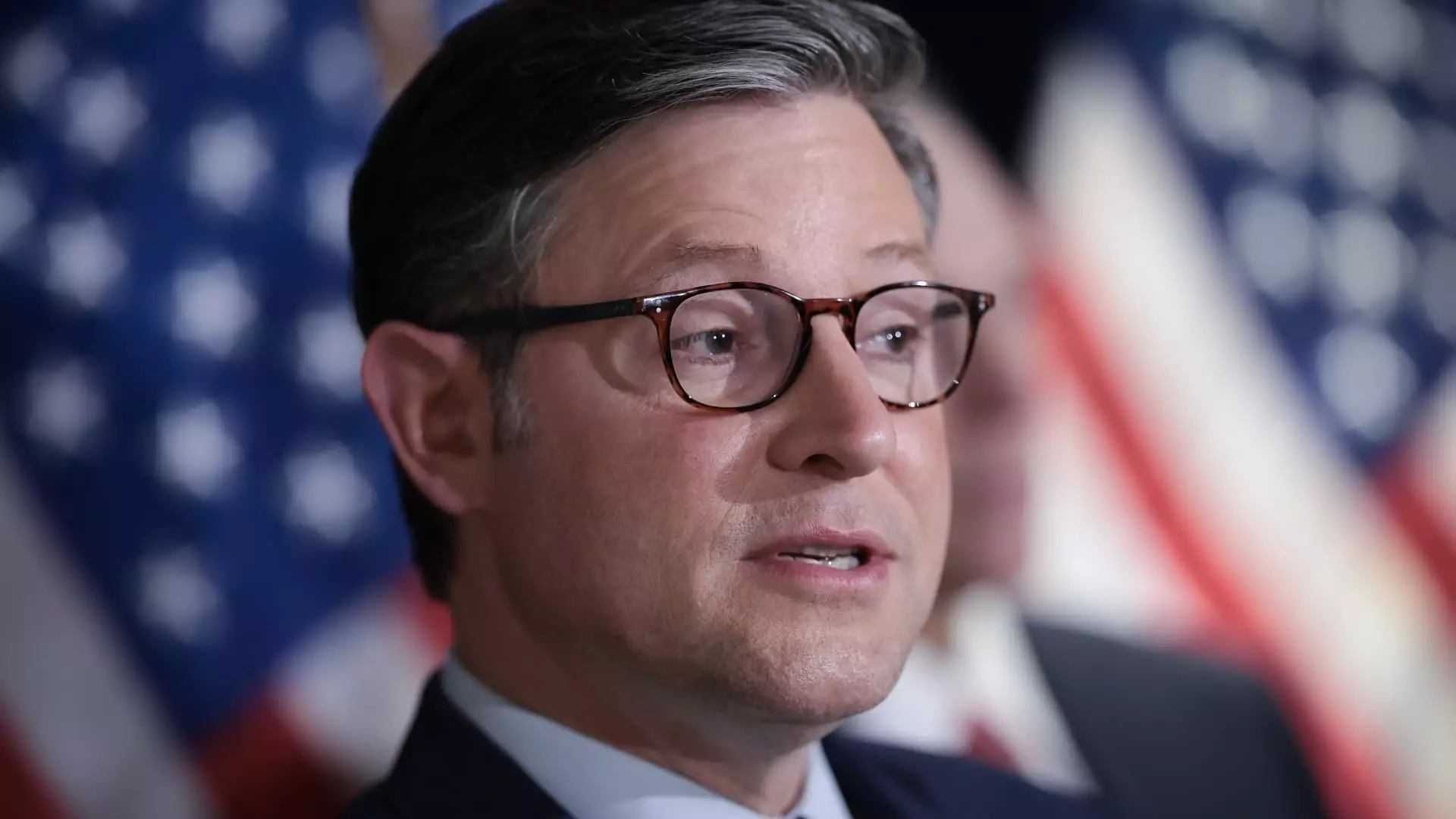The recent comments made by House Speaker Mike Johnson regarding the CHIPS and Science Act have sparked significant controversy, revealing the nuanced relationship between Republican leadership and the legislative actions aimed at bolstering U.S. semiconductor production. Johnson’s initial suggestion that Republicans “probably will” work towards repealing this pivotal legislation has undergone swift retraction, emphasizing the political juggling act he must navigate as he aligns with both party leaders and vulnerable Congressional candidates.
The CHIPS and Science Act, established to foster U.S. semiconductor production, put forth a substantial investment of $54 billion into the industry. This landmark law is applauded for its capacity to stimulate hundreds of billions of dollars in private investment, significantly enhancing job creation across the nation. The legislation comes in response to growing concerns about America’s competitiveness in the tech sector and reliance on foreign semiconductor production. While Johnson’s historical opposition to the bill casts a shadow over his current role as Speaker, the law continues to be a focal point in discussions about domestic economic strategy and trade policy.
Democrats have highlighted the significance of the CHIPS Act not only as a policy measure but also as a success story in their economic narrative, with Vice President Kamala Harris often featuring it prominently in campaign events. Her assertions that Democrats can be trusted with the economy hinge heavily on the claim that the CHIPS Act is restoring American manufacturing strength—a critical argument as the nation strives to rebound from pandemic-induced economic hardship.
Johnson’s remarks illustrate an ongoing struggle that many Republican leaders face amid a more aggressive conservative agenda. His initial comment about a potential repeal of the CHIPS Act was immediately pounced upon by Democrats eager to paint Republicans as out of touch with the economic needs of their constituents. The urgency behind these criticisms reflects a mounting concern regarding job security in sectors reliant on legislative backing, particularly in districts anticipated to see new job creation thanks to the CHIPS Act.
Subsequently, Johnson sought to clarify his position by stating that instead of repeal, efforts would focus on “streamlining” the legislation. This pivot indicates an acute awareness of the need to balance party loyalty—particularly towards figures like Donald Trump, who have publicly derided the Act—with the palpable concerns of Republican lawmakers who recognize the economic benefits brought forth by the law. Johnson’s unsuccessful attempts to disentangle himself from the implications of his words highlight the delicate nature of GOP politics as they remain intertwined with Trump’s narrative and the factional discord that sometimes ensues.
The incident underscores the challenges Republicans face in maintaining coherence within their policy agenda while also addressing the focal economic issues that resonate with voters. Notably, Johnson’s reconciliation with Rep. Brandon Williams, a supporter of the CHIPS Act, illustrates the pressing need for GOP leaders to adhere to the demands of constituents who are directly impacted by such legislation. With economic growth targets tied to these initiatives, any perceived threat to popular programs could carry significant political repercussions, especially in pivotal districts.
Moreover, the backlash Johnson faced concerning previous remarks about regulatory changes and the Affordable Care Act signifies a trend where gaffes can quickly spiral into broader controversies, shaking the confidence of party members whose electoral survival hinges on local support for federal initiatives. The pressure to articulate a consistent and favorable stance towards job creation efforts, like the CHIPS Act, reiterates the complex interplay of legislative intent and electoral strategy.
As House Speaker Mike Johnson continues to navigate the political landscape, the incident surrounding his remarks about the CHIPS and Science Act serves as a microcosm of larger Republican dynamics. While the GOP grapples with its identity in the wake of the Trump presidency, it must also contend with the economic realities that affect the everyday lives of Americans. Moving forward, how leaders like Johnson articulate their support—or lack thereof—for pivotal legislation will not only shape the party’s legislative agenda but also impact their electoral fortunes in the upcoming cycles. Facing pressure from all sides, the challenge remains: to align party goals with the pressing needs of the constituents they represent.

Leave a Reply